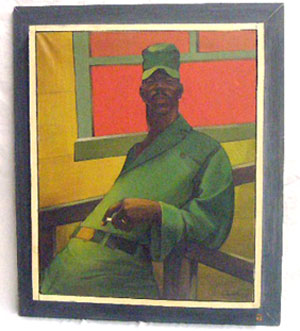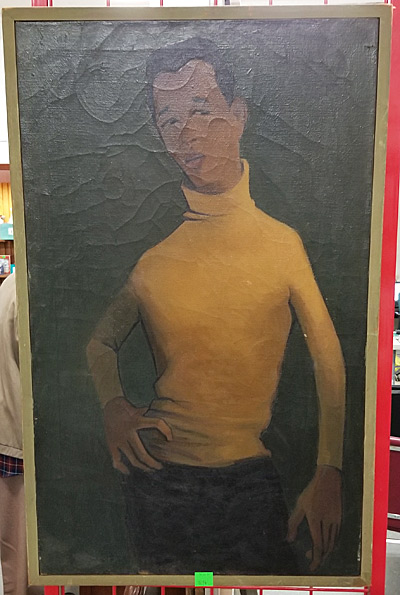As soon as I saw the woman in the painting, I recognized her. Her portrait had come up for auction some years before with another painting of a black soldier with attitude.
I wasn’t able to bid on either of them back in 2011; the prices were too high for me to spend on an unknown Philadelphia artist named Robert Cromartie who likely painted on the side. So, I had to live without them, but I did include the story about them in my book “Art With Heart.”
Last weekend, though, that same painting of the woman was back, along with another of a young man that was also sold before. I was hoping that the soldier was with them, but whoever owned that painting wasn’t ready to part with it. And I understood.
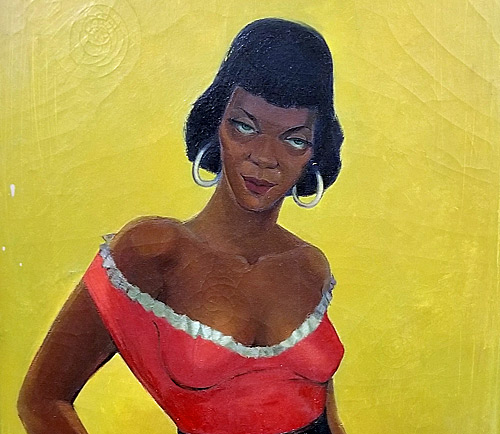
The auction house described the female image in the oil painting as “an African American woman dressed in ‘gypsy’ style usually seen on singers playing the role of Carmen – red dress, black corset, gold earrings, etc.” I hadn’t thought of her as representative of the sexy character in the 1954 movie “Carmen Jones,” but as I looked closer, I could see the similarity.
She had the look of Carmen Jones, but she was no Dorothy Dandridge. The actress won an Oscar nomination for her role as a woman who wooed an engaged soldier played by Harry Belafonte. Dandridge’s Carmen was a sultry “come-hither”; Cromartie’s was a “don’t you dare mess with me.” He perhaps created a Carmen who was closer in nature to the women he knew.
Dandridge was the epitome of Carmen Jones – with her off-the-shoulder blouse, red lipstick, flip hairstyle, gold earrings and red wrap skirt with a covered split up the front. Cromartie’s woman wore a similar daring outfit. His paintings were from the 1950s when the movie was made. Perhaps he was channeling Dandridge.
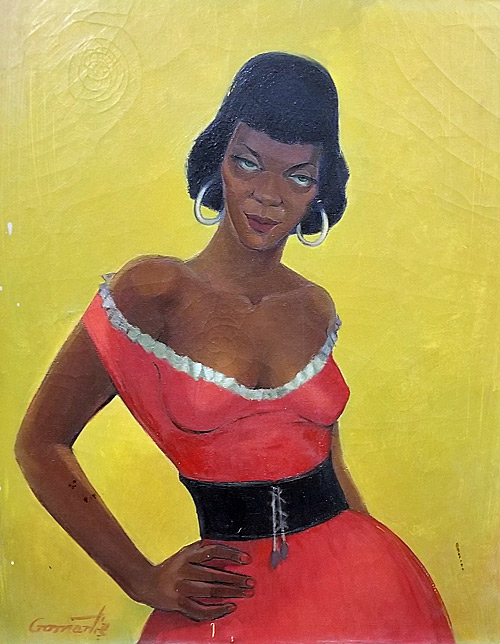
I could find little about Cromartie’s life when five of his paintings came up for auction in 2011. I eventually found an obituary for a Robert Eldridge Cromartie – which I believe mentioned that he was an artist. He died in 2007.
On its catalog sheet this time, the auction house spelled his name Gomartie, which is what his signature looks like on the canvases. The first time the pieces came up for sale, it was spelled correctly as Cromartie. The auction house’s resident art expert, Rob Goldstein, who died last year, had talked to the man’s daughters and had gotten the name right. He had said then that they did not know much about their father’s work as an artist. The paintings had been stored in a basement and presumably forgotten.
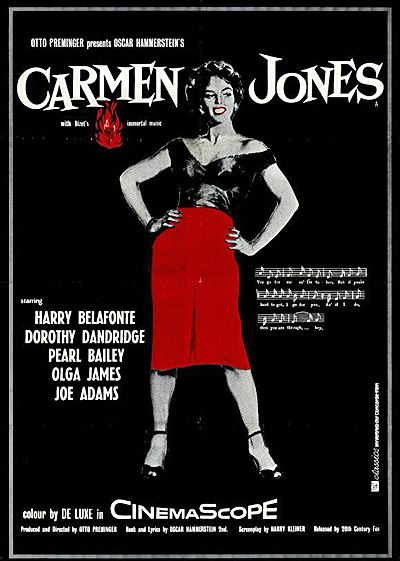
When the woman’s portrait came up for auction this time, the auctioneer recalled it selling 10 to 15 years ago for $750 – which I corrected. But he continued to put the price at $750 and also gave the price of the portrait of the young man at more than the $250 that it sold for back then.
The woman’s portrait sold for $500 the first time around. This time, I was able to buy it for considerably less. The soldier’s portrait sold for $1,000 in 2011.
